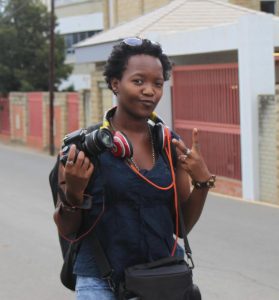WHAT IS SCRIPT WRITING?
- The art and craft of writing scripts for mass media such as feature film, television productions or video games.
- Every visual story told originates from paper and ink. There has never been a film shot with a script. Yes, films have been shot with incomplete scripts, but never without scripts. Because a script is the direction of the whole production.
“To make a great film you need three things – the script, the script and the script.” Alfred Hitchcock.
ESSENTIALS OF SCRIPT WRITING
- When you go to school, you know you need books and a pen. Maybe a laptop too. Same goes when you go to town, you know you need money for things you will get. Point is, in every mission, you need tools, essentials or things that will help you to succeed in your mission.
- For a writer to write creatively, there’s a long list in their toolbox and of course, it starts with a pen and notepad. Inclusive to that toolbox, Scriptwriting also has its essentials to achieve a great script. Although many websites have already listed more than twenty essentials, I found out that in most cases, they do repetitive of the top eight essentials, which you will find on the top of the list. Let’s work only with these eight. I guarantee you, if you can master these eight, you will definitely end up with a better script.
ESSENTIALS OF SCRIPT WRITING
-
STORY AND CHARACTER
-
What is a story?
A story is an idea that you as a writer came up with. As a scriptwriter, your idea should serve your purpose. Ask yourself these questions: Is my idea compelling enough for the characters and audience to go on? Do I know which genre it is? Why do I need to tell this story? What the persona is trying to portray and what the story itself is trying to teach us? These are the very first things that a story should be able to answer.
-
Characterization
Characters in the story are the prime tellers of the story. What they do and they don’t do tell the audience how the story will unfold. A writer should focus most time in creating a character, and understanding the character in and out. That way, everything that the character will do will make sense and bring life into the character.
-
OUTLINE
Give a carpenter a truckload of tools and a bunch of wood; he’ll build something. But hand him structural blueprints, the end result will be amazing. Screenwriters work the same way, and the outline is their blueprint.
Story outline is an early development skeleton for how the writer plans to assemble the scenes within a screenplay. It allows the writer to construct a general list of sequential scenes and moments in the order that they will be written within a screenplay.
This writing tool allows the writer to get an overview of the story beats and moments before applying them into the screenplay format of locations, scene description, and dialogue.
-
THREE-ACT STRUCTURE
In filmmaking, the new culture is that “You learn the rules to break them.” The basics of 3-Act Structure: setup, confrontation and resolution are well known in the creative world. No story is a story without beginning, middle and end. The 3-Act structure is most the only way to write a story.
As a professional writer, in the field of Filmmaking, I am aware of the movies like Pulp Fictions and Memento amongst others. Yes, the movies follow the 3-Act Structure but not in a normal way one would realize. Let’s take Pulp Fiction for example, when you watch it, you have to hold all the pieces of the narrative in your head and slot items in chronological order as they appear on the screen.
Once the entire movie ends, and all the events have been presented to you, you will be able to review all the scenes in linear, chronological order, which will create the standard three-act rise-and-fall plot structure. It’s the experience of learning the events out of order, and the retroactive “Oh, now that makes sense!” which makes these stories more interesting.
However, breaking or rather shuffling this structure is not as simple as one would think. To put such a non-story in before the audience, you must have something really compelling to offer in its place.
-
ORIGINAL VOICE
If you follow Quentin Tarantino’s films, you’ll definitely see his unique penchant for rambling dialogue punctuated by twisted violence. That is “his writer’s voice”.
Your voice originates from your unique point of view and originally weaves itself through your screenplay and characters.This soon is seen as your style of writing. Once you hear people say they recognize your writings because of your words or character, know that you have found your original voice.
-
SCREENPLAY FORM
The first screenplay that I wrote back in my first semester in Varsity, was written with Microsoft word. I had to balance all the 6 elements of master scene format in the right format. Frustration killed me.
The Master Scene Format are:
- Scene Heading
- Action
- Character Name
- Parentheticals
- Dialogue
- Transitions
Please use one of the many software available for screenwriting such as WriterDuet, Final Draft, Celtx and many others.
- Why do we need to follow the format for the screenplay?
Generally, 1 page of screenplay will result in 1 minute of screen time, so a 120-page script that is correctly formatted should translate into a 2-hour film.
-
“WHAT HAPPENS NEXT”
All scenes must move the story forward, reveal the character, or both. Any scene that does neither, is not necessary and should be cut.
In Nigerian movies, you will find a scene where the character moves from one place to another for the whole of 1 minute. Then I wonder, what was written on the script? He gets out of the house. He passed the plot. He passes the tree. He passes the gate. He passes two people and doesn’t greet them. He walks on the road that has thorns in both sideways. Imagine!
If in one Nigerian movie they would remove that long process of walking or eating the whole food while watching, wouldn’t the story still be followed perfectly? Ask yourself this question in every scene: If I remove this scene from the story, will the story lose its meaning? If the answer is no, remove it.
-
BRIEF DIALOGUE
When we talk about the Video Games, “FINISH HIM.” I am super sure that these two lines remind you of Mortal Kombat. When you see/hear this line, you know it is either you are about to die or you’re about to kill your opponent. You also know that you have to perform your Fatality attack.
In the movie Pulp Fiction, the character Jules (played by Samuel Jackson) had his favourite bible verse that he would quote before he killed a person. That only dialogue tells the audience so much about his personality and background.
The two examples I gave out simply shows the strength of dialogue in a story. You do not have to write everything in a dialogue. Let the vision tell most of the story, and then just in a very brief dialogue, pass the remaining message. Remember, a dialogue does not only directly pass the message, it also reveals the character’s thoughts, emotions and intentions.
-
KNOW YOUR LOGLINE
Logline is your whole story in a sentence. When you’re a scriptwriter and you’re looking to sell your story to producers, knowing your logline in all forms is very important.
Here are three main elements that a logline should have:
- Protagonist
- Goal
- Obstacle
If you achieve these elements in your logline, you have everything you need.
CONCLUSION
In conclusion, scriptwriting has a critical format. If you can master the format, then your scripts will get a chance to be read anywhere you submit them. The suspension of Disbelief starts from the writing stage. As a scriptwriter, your success is not based on only writing a story, it is based on how the producers will believe in the story, how well the director can bring your story to life, and most importantly how the audience will believe the imaginary tale you’re feeding them. That’s why when writing, you should learn to be all three people at once: writer, character and audience.

Halieo Motanyane is a Mosotho girl born and raised in Lesotho. She’s a filmmaker by profession, specializing in Scriptwriting and editing. She writes screenplays for film production and dramas for local theatres. She also works for the National Lesotho Television as a studio personnel and a producer, writer, editor and presenter of Children’s Programmes.








Wow! I’ve learnt something new, the 3-Act Structure. My take home message is “when writing, you should learn to be all three people at once: writer, character and audience.” This write-up is quite simple and comprehensible. I love it.
Please, could you make me understand the difference between scriptwriting and the art of writing drama?
Thank you for your comments. The tutor will respond.
Hi Nnane, so sorry the reply is coming very late.
First of all, remember the concept of the two is very different. Drama is as it says: the actors dramatizes the story on stage. The whole story has to be between real and out of this world. Drama tells the story in a way that one would say it’s extraordinary. Hence the writer should write a drama without any boundary, all while imagining her/his wildness within the stage positions.
As for scriptwriting, the story as acted as realistic as it can get in front of a camera. The story has to be “real” to the audience. Scriptwriting is a bit restricted since it should be able to portray real events and possible events and behaviours.
I hope this answers you to your satisfaction. 💜💜
Very nice article. I definitely love this website.
Continue the good work!
Thanks.
I ⅼike it when peopⅼe get together and sharе ideas.
Great website, keep іt up!
Thank you
This is so great 💛 I’ve been googling scriptwriting for a while (as a journalist / print writer) and this is the best summary I’ve seen. Thank you for sharing.
We are glad you found the information useful. Thanks a lot for your kind comments.
Lenina, you’re most welcome and thank you for the comment💜💜.